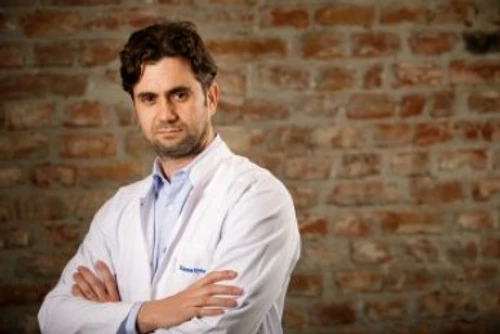
Pregnancy, one of the most beautiful periods in a woman’s life, also comes with a great concern, namely the good development of the baby from the intrauterine stage.
We talked about these with Dr. Andreas Vythoulkas, specialist in obstetrics-gynecology, with overspecialization in infertility. Ultrasounds are, first of all, simple methods of exploring the human body. They are not irradiating, they use ultrasound and they are not painful or have harmful effects on the fetus, so they do not represent any reason for concern for the expectant mother, pointed out Dr. Vythoulkas.
A good monitoring of the pregnancy involves the performance of three morphological ultrasounds, the main purpose of which is to assess the health of the fetus, but also to monitor it during the entire pregnancy.
First trimester morphology (11 – 14 weeks)
It is the period when the fetus is sufficiently developed, so that the specialized doctor can make a detailed analysis of its anatomy and, very importantly, can detect the existence of a serious malformation (such as the absence of a limb or part of it, the absence of the skull cranial), of a genetic condition (such as Down syndrome, one of the most common conditions).
Also, the existence of a multiple pregnancy can be identified and the gestational age can be estimated. During this period of pregnancy, the risk of developing pregnancy complications such as preeclampsia, intrauterine growth restriction or the risk of premature birth can be assessed.
If these problems are detected in time, therapeutic intervention can be carried out, with much higher chances of success compared to interventions carried out later. At this stage of pregnancy, most of the ultrasounds are done through the abdomen.
However, there are cases – when the adipose layer on the mother’s abdomen is too thick, the uterus is retroverted, the fetus has a difficult position – when the doctor will resort to performing the vaginal ultrasound investigation.
Find out what are the most common gynecological conditions HERE
Second trimester morphology (19-22 weeks)
Although many mothers are anxiously waiting for this ultrasound to find out the sex of the baby, I would like to tell them that this second trimester ultrasound is the most important of the investigations, because it is the one that analyzes the fetus in the smallest detail detail, pointed out Dr. Vythoulkas.
And it is the ultrasound that lasts the longest in terms of time, 30-45 minutes. During this intervention, the doctor will measure and examine the shape and structure of the skull, the face of the fetus (the existence of malformations is checked), the spine, internal organs, hands, feet, the position of the placenta and the amount of amniotic fluid.
Also, during this ultrasound, depending on the position of the fetus in the uterus, the parents can find out its sex, as well as its weight and age as accurately as possible. Sometimes, due to the position of the fetus, the doctor cannot make some of the measurements, in which case the pregnant woman will return to the clinic for a repeat ultrasound (somewhere at 23 weeks).
Any detected problem with the fetal heart requires additional investigations, so the future mother will receive the recommendation to perform a fetal cardiac ultrasound, which will analyze the child’s heart in the smallest detail.
Third trimester morphology (32-34 weeks)
It is the ultrasound that evaluates the weight of the fetus, the position in which it is located, the condition of the umbilical cord and the placenta, the amount of amniotic fluid.
Also, in this type of last ultrasound, the doctor can detect the existence of fetal distress.
Possible late malformations, which were not detected until that moment, can also be detected, as well as a series of anomalies of the central nervous and musculoskeletal system.
At the same time, the doctor can evaluate the length of the baby, as well as its weight.

Dr. Andreas Vythoulkas, Bucharest
Obstetrics-gynecology specialist
www.vythoulkas.ro
Contact: 021.9607






































